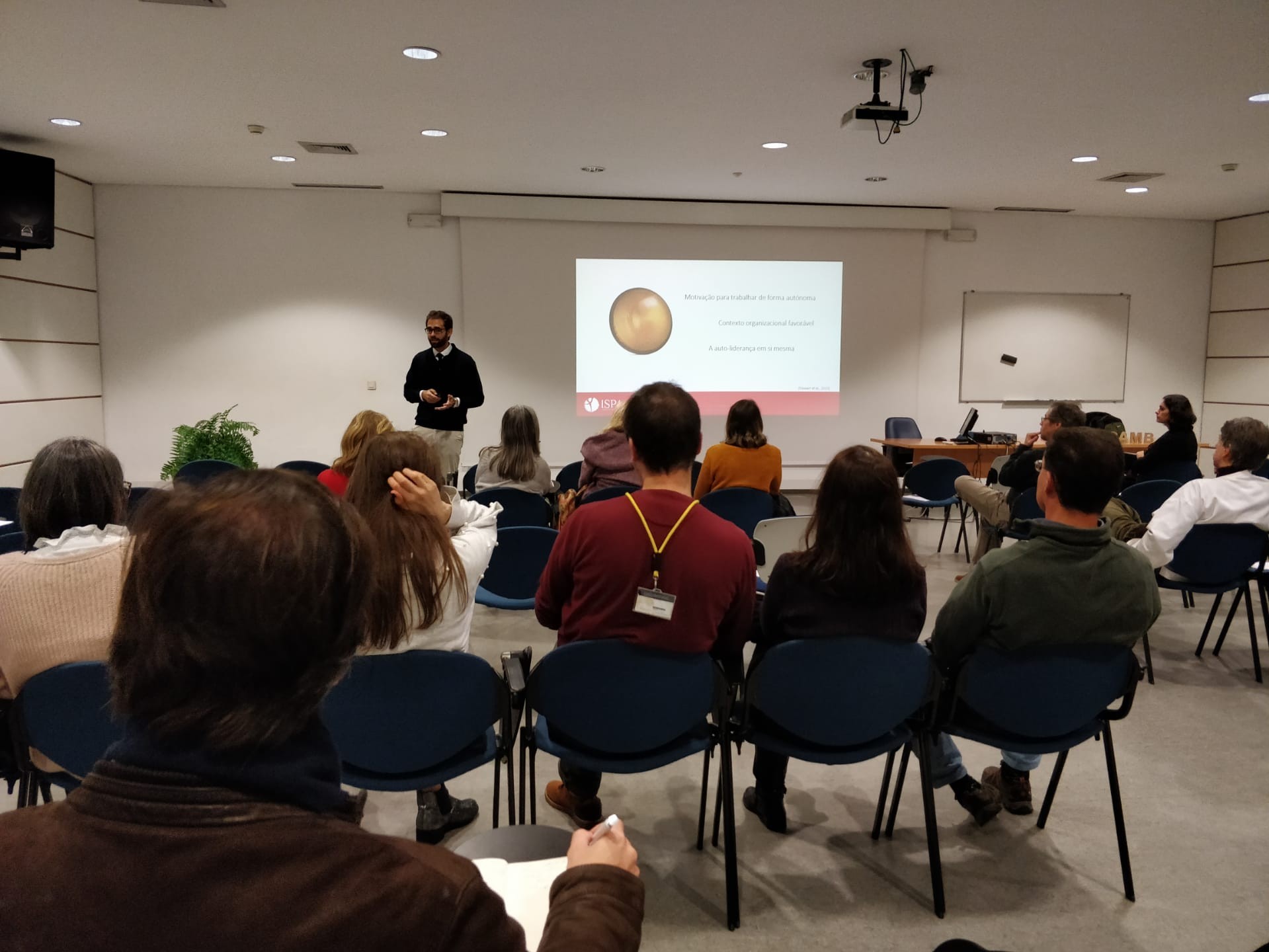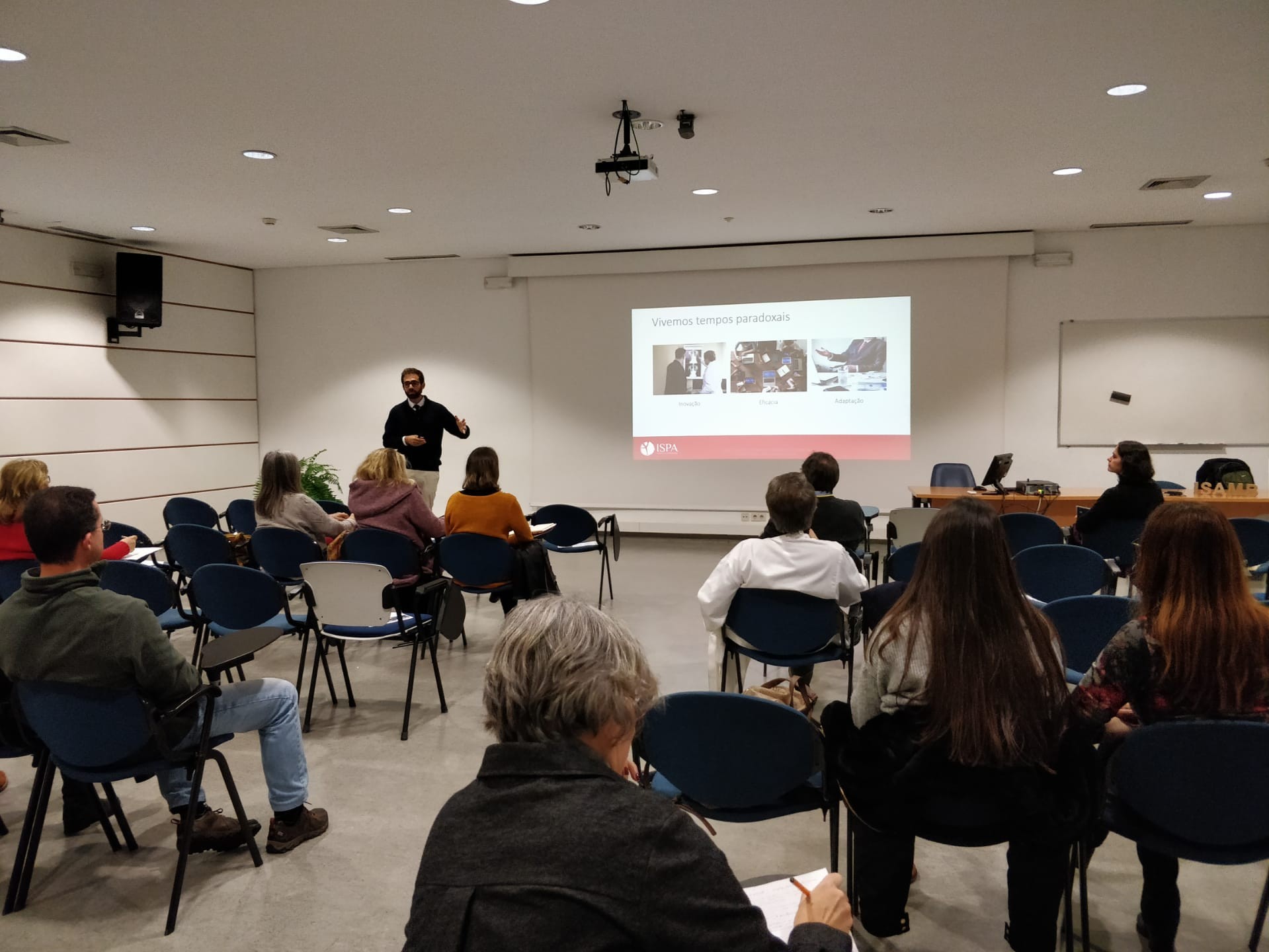The role of self-leadership in unpredictable environments was the topic under discussion at the third and final session of the Exploratory Conferences' Autumn Cycle, an initiative of the Institute of Environmental Health (ISAMB), which was held on 18 December and organised by Doctor Pedro Marques-Quinteiro, Assistant Professor at the Department of Social and Organizational Psychology (ISPA- University Institute).
One of the major challenges for the sustainability of organizations, especially in times of transformation, is to bring together employees who perform their functions in a motivated, efficient and resilient manner. One of the strategies to achieve this is self-leadership, that is, the process of using a set of behavioural, cognitive and emotional strategies to develop the motivation needed to perform functions effectively and efficiently, regardless of more or less adverse conditions.
However, the individual motivation to work autonomously and the organizational context in which the employee is inserted are decisive for the successful adoption of self-leadership processes. Thus, organizational contexts that promote the empowerment of their employees will be more favourable. It should be noted that studies presented by Doctor Pedro Marques-Quinteiro show that this process is associated with higher levels of innovation in the performance of tasks, but also that self-leadership is resilient in unpredictable environments and is not affected by toxic behaviour either by peers or by the managers. The question that arises is how can people train, because that is what this is about, their self-leadership? Some techniques include setting goals and objectives, creating reminders, and celebrating each goal achieved by setting a reward system.
Holder of a Ph.D. in Human Resources Management and Development from ISCTE - University Institute of Lisbon, Doctor Pedro Marques-Quinteiro conducts research in self-leadership; human adaptation and performance in isolated, confined and extreme environments; coordination and interpersonal synchrony. He is currently involved in several scientific projects on adaptation to extreme environments (i.e. urban disasters; Antarctica) supported by the Foundation for Science and Technology (FCT), the Portuguese Polar Programme (PROPOLAR) and the European Space Agency (ESA).
Throughout the three sessions of the Exploratory Conferences’ Autumn Cycle, the importance of leadership and governance in the context of health organizations was discussed, as well as their relevance to teamwork and health, education and research organizations. The topic for the next Spring Cycle of Exploratory Conferences is Science and Art, which is coordinated by Paulo Navarro-Costa, a researcher at the ISAMB and the Gulbenkian Institute of Science. The new Cycle programme will be available soon and, as always, we count on you!


Francisco Antunes and Joana Costa
ISAMB Exploratory Conferences’ Autumn Cycle Coordinators

